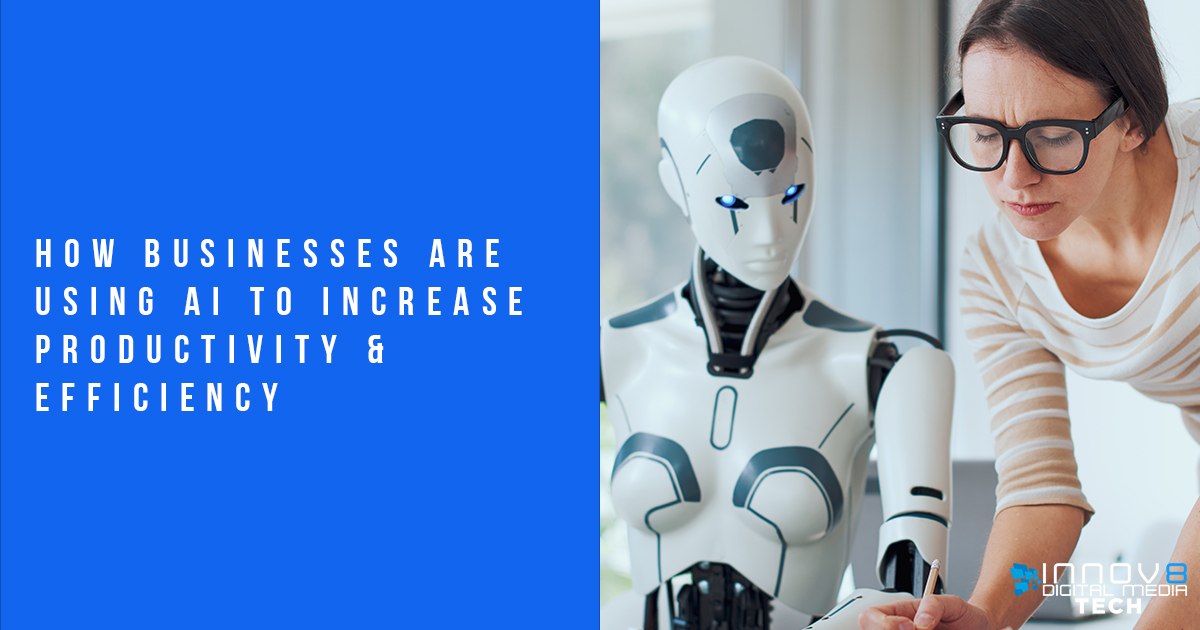















 Adam Keith Milton-Barker 10267 2024-02-12
Adam Keith Milton-Barker 10267 2024-02-12
As the business world advances and becomes more reliant on technology, companies are turning to artificial intelligence (AI) to streamline procedures, maximize profits, and enhance efficiency. AI is transforming the way businesses operate and has become a game-changer in operations ranging from customer service to human resources. It is no longer a future prospect but is already in use and creating an essential impact on various businesses. In this article, we will explore how businesses are utilizing AI to increase efficiency and productivity in their daily tasks.
One of the main benefits of AI is automation. In the past, manual processes were used to handle repetitive tasks, such as data entry or administrative tasks. The use of AI technology automates these routine time-consuming processes, freeing up valuable time for staff to work on more productive tasks. With implemented software to analyze and identify patterns, businesses can complete repetitive tasks such as detecting fraud, handling customer inquiries, and scheduling appointments faster, accurately, and more efficiently.
Another significant application of AI automation is in the supply chain management systems. By using machine learning algorithms to analyze data, warehouse management software can direct the product flow and prevent overstocking and understocking products to save time and reduce cost in the warehouse by eliminating the need for human intervention.
AI technologies are helping businesses improve customer experiences in various ways. For instance, the use of chatbots in customer support not only saves time, but it is also more effective. Chatbots work 24/7 and can handle thousands of conversations with different customers simultaneously. They can also help with sorting, prioritizing, and escalating inquiries to human responders. This has greatly enhanced customer experiences as customers can receive immediate answers to their questions without waiting for human representatives.
Additionally, companies can use AI technologies to personalize customer interactions. By analyzing customer data, AI systems can use insights to provide personalized product recommendations, offer customized marketing messages, and provide improved customer service. Personalized experiences show customers that businesses are paying attention and care about their preferences, resulting in increased customer loyalty, and overall customer satisfaction.
The HR department has witnessed major changes in their operations over the years due to technological evolution, with the adoption of AI being the most significant one. The use of AI in the recruitment process has shortened the time to fill vacancies significantly by automating tasks like posting job openings, scanning through resumes, and scheduling interviews. AI is not limited to only recruitment but also aids in employee engagement, retention, and compliance.
AI technologies power employee engagement by collecting employee feedback data from various sources like surveys and performance indicators, generating insights, and providing solutions to improve employee motivation and productivity. AI also ensures that compliance is met by tracking and addressing compliance issues. It also assists HR personnel in their works by providing insights and facilitating decision-making.
With the utilization of AI in predictive analytics, businesses can anticipate events and trends before they happen, hence preventing various complications. Predictive analysis can be applied in sales, productivity, financial management, and supply chain management. This helps companies to recognize patterns and opportunities and foresee potential problems before they escalate into bigger issues.
For example, businesses that rely on delivery services can benefit significantly from AI-powered predictive analytics. By implementing GPS tracking and using machine learning algorithms to predict traffic patterns, delivery companies can ensure timely delivery of goods to their customers, thus enhancing customer satisfaction and improving business reputation.
In conclusion, AI offers a wide range of services to businesses, allowing them to streamline processes, reduce costs, and enhance customer experience. By implementing AI technology, companies can spend more time focusing on tasks that impact their bottom line and also improve customer satisfaction. With the continuous evolvement of technology, businesses that embrace AI stand to have significant benefits over their competitors, resulting in improved business success. The utilization of AI is not a fad but a way the business world is evolving, and it should be embraced with open arms.
Adam is founder and Managing Director of CogniTech Systems LTD and creator/primary developer of the CogniTech CORE platform. Adam is an Intel Software Innovator, NVIDIA Jetson AI Specialist/Ambassador/Certified DLI Instructor, and part of the Edge Impulse Expert Network.
View Profile View Linkedin View Website View Github